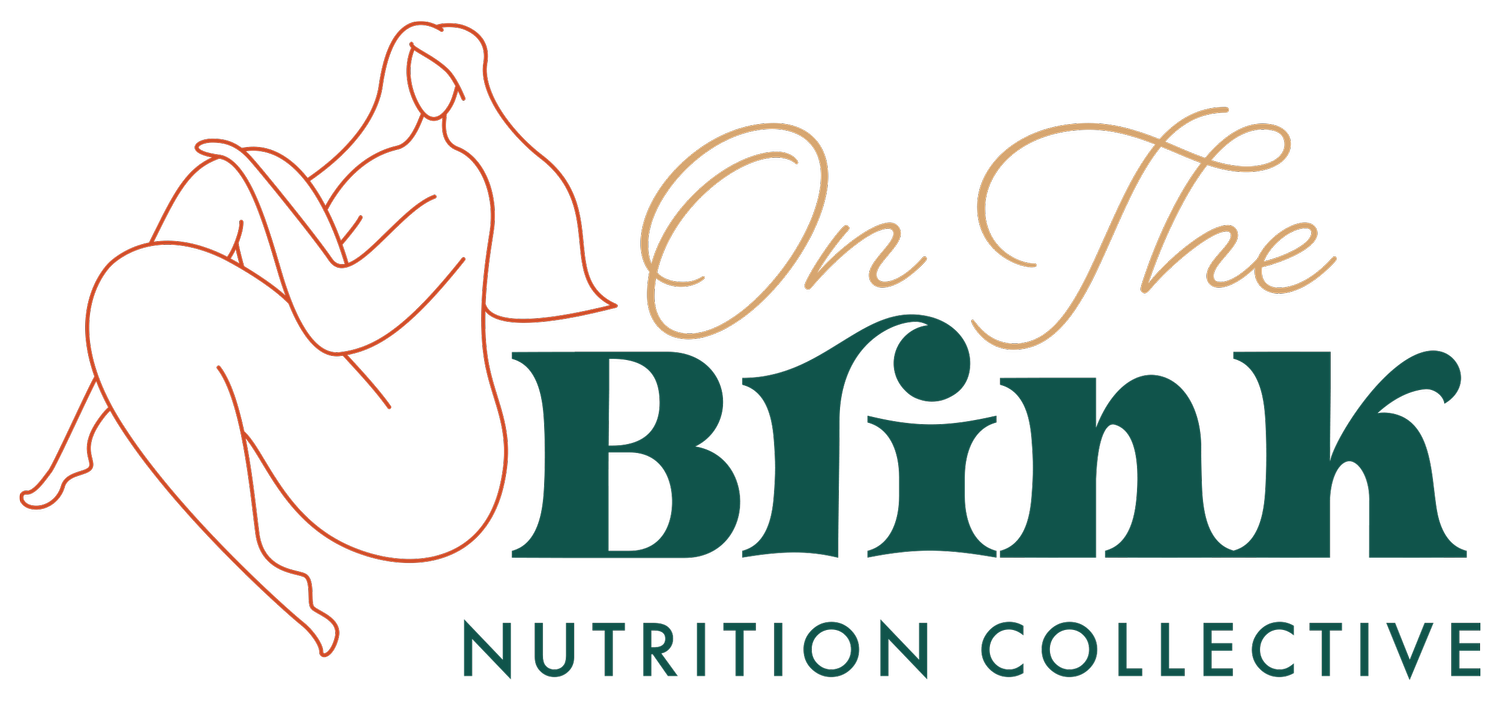Winters Of Recovery
Today I want to talk about winter.
We are approaching the middle of winter in the northern hemisphere. The cold and dark of this season is an invitation to slow down and tuck in. On the surface, winter appears to be a time of complete shutdown: the bare trees, the hard ground, the short days and long nights. And while it can be a season of stillness, life continues on.
Don’t let winter fool you. A deciduous tree, for instance, may have lost its mature leaves, but if you look closely, you will see buds that formed in the preceding summer firmly in place. The tree is far from dead. It has slowed down its growth. It’s waiting, ready for the sun’s return to spring back into action, adding a fresh batch of leaves, and another ring to its trunk.
I find the story of how the natural world abides winter to be full of hope and quite useful in my work supporting people doing the work of healing their relationship with food and their body.
Often in the recovery world, we hear about the mentality of pushing. Pushing through discomfort. Pushing past the eating disorder voice. Pushing against the impulsivity of eating disorder behaviors.
So, here you are, working hard to navigate and heal the behaviors and impulses of an eating disorder and create and support brand new behaviors with food and your body. And suddenly (or slowly) you find yourself completely exhausted and “stuck”. Maybe even burned out from all the “pushing through discomfort” that some parts of recovery work ask you to do. You may be mislabeled as “noncompliant” or “unmotivated”.
Not true.
Recovery is not just a grueling uphill battle. It is that partly. Forming a new, more peaceful relationship with food and your body insists on you forming a new relationship with discomfort. I won’t lie, there is hard work, struggle, and grief involved. But no one ever said you couldn’t stop for a breather and a rest. This white-knuckled grip you have on “progress”, is there a way to relax it just a bit?
What I’m saying is that this may be an invitation to enter into a winter of recovery. To the outsiders, it may look bleak and even undone. Fear not. Here is the truth: While winters cannot be avoided, they need not be feared.
I am here to defend and reframe the winters of recovery in a more kind and hopeful way.
What if we saw this season as a call to stop and look back on progress so far? An honoring of the hard work. A sabbath. A time to take stock of the gains, to pause and enjoy a plateau. Perhaps even allowing a little downhill dip after a hard won summit.
In moments of apparent lack of forward momentum, please know this - no season lasts forever.
Here are some ideas to support a winter season of recovery:
Practice {radical?} acceptance. Slowing down is not failure. It just isn’t, hon. In fact, from the spot we yield to rest is where we find strength to push off again.
If a loved one, a person paying for your treatment, or your recovery team members (that would be the doctor, therapist, coach, dietitian, etc.) are measuring your “recovery” with narrow metrics (weight, menstrual cycle, eating according to your meal plan), ask for them to consider relaxing the standards a bit. Think outside the box of “goals”. Or, even ask for a week where they don’t measure weight or look at food records. A vacation from the toil of recovery.
Keep to a regular eating pattern. Even if it’s the same, safe meal over and over. This is not a time for exploring and experimentation.
Transition to premade meals (frozen meals, cans of soup, etc.) and milkshakes (like Ensure or Boost) to support your energy needs.
Try a day of letting the sun be your guide. Get out of bed with the sunrise. Raise the blinds. Drink a glass of water. Take some deep breaths. Find a gentle stretching routine. Wind down as the sun sets (yes, even if it’s 5pm). Dim the lights in the evening. Turn off screens. Light a candle. Take an early shower and get into comfortable clothing. Have a cup of herbal tea. Write in your journal or color/draw. Carefully massage lotion into your feet, knees, elbows, and hands. Brush your teeth gently.
Bask in sunshine (even if it’s artificial). Be a cat, find a ray of light streaming in the window. Curl up in its warmth and brightness.
If you are raising a family during recovery, ask for help. Someone in your life may be craving the delicious feeling of holding your baby in their lap. Someone in your neighborhood may be a pro at flipping grilled cheese sandwiches and laughing over spilt milk. Someone in your community may not be tired of reading Brown, Bear, Brown, Bear because they haven’t read it seventy-four times this week. Someone at your child’s school can tutor and check the math homework. Ask. For. Help.
There is no one right way to go through a winter. There is no one right way to heal from an eating disorder.
You deserve to pause and rest from your hard work. Trees do it. So can you.
